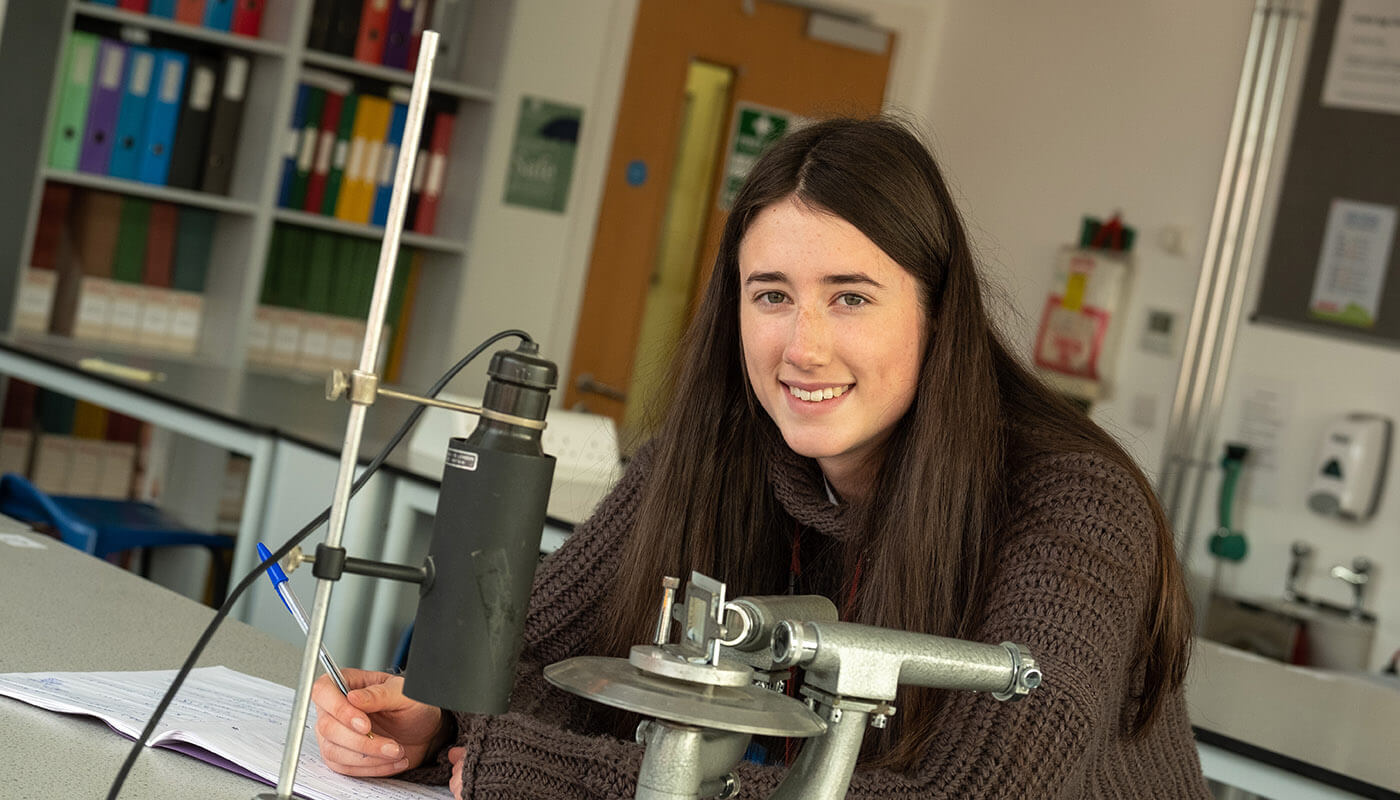Physics

Physics is an exciting and challenging subject to study, requiring an enquiring mind and clear thinking. The course allows you to learn about the fundamental ideas in Physics and their application in technological settings. It shows how Physics is used and its place in today’s world. The course is very mathematical and involves describing and explaining physical phenomena. You will have the opportunity to develop practical, data-handling and ICT skills.
Topics you will cover are wide-ranging but include: electricity, materials, wave and quantum behaviour, astrophysics, mechanics and medical physics. You will also study radioactivity, atoms, electric and magnetic fields, atomic, nuclear and sub-nuclear structure.
The course is assessed 100% by written examination.
The department runs a popular Physics Society for students wanting to further their knowledge in topics beyond the curriculum. We also take part in the British Physics Olympiad competitions.
The skills that you gain through studying Physics are in high demand in the world beyond college. A level Physics is a well-respected academic and scientific qualification that opens many doors to your career path. The degree courses that many of our students go on to study cover a wide range of subjects – from Engineering and Medicine to Mathematics and Computer Science, as well as Physics, Astrophysics and Electronics.
Modelling Physics – Exam Paper – 37% of marks
Exploring Physics – Exam Paper – 37% of marks
Unified Physics – Exam Paper – 26% of marks
Summary
Module 1 – Development of Practical Skills in Physics
Planning, Implementing, Analysis, Evaluation and Use of Apparatus in Physics
Module 2 – Foundations of Physics
Physical quantities and SI units. Making measurements and analysing data. Uncertainties and errors. Nature of quantities. Relationships between variables.
Module 3 – Forces & Motion
Kinematics, linear motion and projectile motion. Dynamics and motion with non-uniform acceleration. Equilibrium, density and pressure. Work, energy and power. Springs and mechanical properties of matter. Newton’s laws of motion, collisions and the conservation of momentum.
Module 4 – Electrons, Waves & Photons
Charge and current. Energy, power and resistance in electrical circuits. Series and parallel circuits, internal resistance and potential dividers. Wave motion and electromagnetic waves. Diffraction, refraction and superposition of waves. Stationary waves. Quantum physics, the photoelectric effect and wave-particle duality.
Module 5 – Newtonian World & Astrophysics
Thermal physics of solids, liquids and gases. Ideal gases. Kinematics of circular motion and the centripetal (resultant) force. Simple harmonic motion, damping and resonance. Radial and uniform gravitational fields, gravitational field strength, gravitational potential energy and Newton’s law of gravitation. Planetary motion. Stars and the electromagnetic radiation they emit. Cosmology.
Module 6 – Particles & Medical Physics
Charging and discharging capacitors. Radial electric fields due to point charges and uniformly charged spheres. Coulomb’s law and electric field strength. Uniform electric fields between charged metallic plates. Magnetic fields and the motion of charged particles in magnetic fields. Electromagnetic induction and Faraday’s law. Particle physics and radioactivity. Nuclear fission and nuclear fusion. X-ray imaging, ultrasound imaging and the uses of radiation in medical diagnosis.
Students may find it useful to read up on the following topics: SI units, basic algebra, trigonometry, drawing graphs, calculating gradients.
Study Level
A Level
Exam Board
OCR
Contact Details
Hannah Horsley
Head of Department
horsley_h@sjd.ac.uk